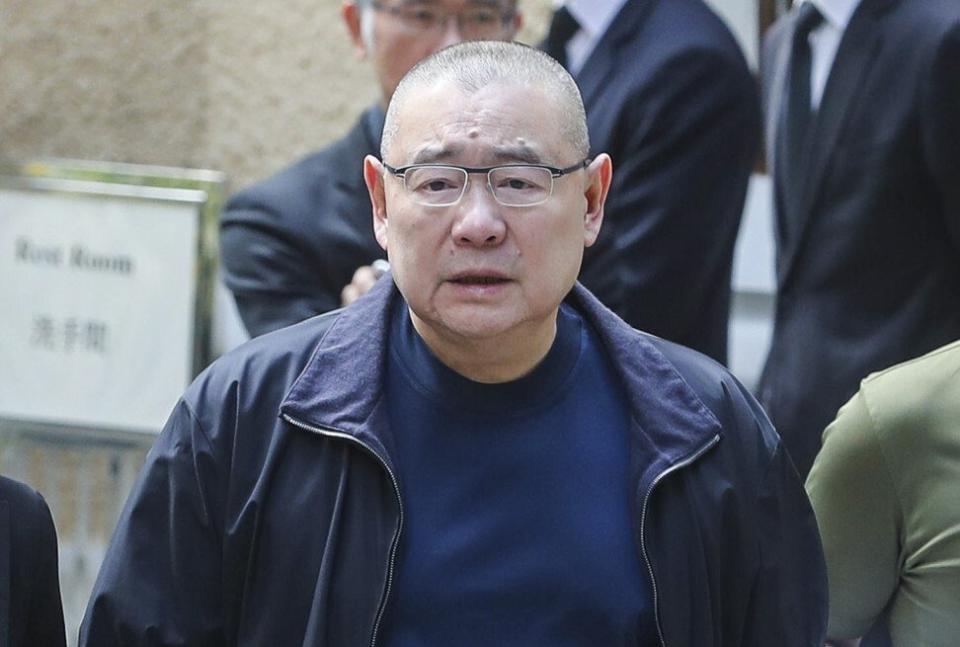HSBC, UBS among big banks to have cut exposure to China Evergrande as outlook worsens for debt-stricken developer
Big banks and fund managers have been heading for the exit and reducing their exposure to China Evergrande Group in recent weeks as the outlook has soured for the world's most indebted property developer.
As a result, many financial companies sought to reassure investors and downplay their exposure as questions lingered about whether Evergrande managed to make an US$83.5 million coupon payment due on Thursday.
The Shenzhen-based company had some US$300 billion in liabilities at the end of the first half of this year, and concerns about potential contagion have sent borrowing costs soaring for other property developers and shaken financial markets.
Do you have questions about the biggest topics and trends from around the world? Get the answers with SCMP Knowledge, our new platform of curated content with explainers, FAQs, analyses and infographics brought to you by our award-winning team.
UBS Group CEO Ralph Hamers said the bank's exposure to Evergrande was "immaterial" and limited to collateral calls on margin loans, while rival Credit Suisse said it was not "an existing lender to Evergrande and we have no direct lending exposure to the company".
HSBC CEO Noel Quinn told a banking conference this week that the situation surrounding Evergrande was "concerning", but the bank had not seen any direct effects from the situation and he was not worried about the lender's exposure.
Standard Chartered chief financial officer Andy Halford, speaking later that day at that same conference, said the bank had "no direct exposure and negligible indirect exposure" to the embattled developer.
"China will always have some degree of unpredictability - any country does, but China maybe more so than some - but I think the trick here is to spread exposure across sectors, which is what we have done, and to be very attuned to what is happening on the ground," Halford said at a conference hosted by Bank of America. "We need to be careful that we don't overreact. In this instance we don't have any significant exposure, the overall sectoral exposure is very modest and we're much, much less concerned than the initial market reaction."
Cash-strapped Evergrande's troubles have multiplied this summer as it faced questions about its ability to repay its massive debt load against the backdrop of Beijing's efforts to cut borrowing levels in China's property sector and take some of the air out of speculative bubbles that have driven up residential property prices in recent years.

HSBC CEO Noel Quinn said the Evergrande situation is 'concerning', but he is not worried about the bank's exposure. Photo: Bloomberg alt=HSBC CEO Noel Quinn said the Evergrande situation is 'concerning', but he is not worried about the bank's exposure. Photo: Bloomberg
Earlier this month, Fitch Ratings cut Evergrande's long-term foreign-currency issuer default rating to four levels below what it is considered investment-grade debt, saying the developer faces a "high default risk". Moody's Investors Services and S&P Global Ratings have also slashed Evergrande's ratings multiple times this year.
On Wednesday, Evergrande said its Hengda Real Estate Group had "resolved" an interest payment separately due on its yuan-denominated onshore debt as it sought to avoid default, without providing details.
It was scheduled on Thursday to make an interest payment on a dollar-denominated debt that is set to mature in March, but it was widely expected to not make that payment on time. Several bondholders contacted by the Post said they had not heard from Evergrande as of the close of business on Thursday. Evergrande did not make a public statement on Thursday.
That same day, Chinese Estate Holdings, Evergrande's second-biggest shareholder, said it had dumped a major chunk of its Evergrande shares at a loss and signalled it could sell off its remaining stake.

Joseph Lau Luen-hung, former chairman of Chinese Estate Holdings Photo: Sam Tsang alt=Joseph Lau Luen-hung, former chairman of Chinese Estate Holdings Photo: Sam Tsang
Evergrande has a 30-day grace period to make a payment on that dollar bond before a default can be declared.
Earlier this year, HSBC, alongside BlackRock and UBS, were large holders of Evergrande's debt in their asset management businesses, according to Bloomberg data.
HSBC, Hong Kong's largest currency-issuing bank, no longer holds Evergrande in its China bond portfolios or its Asia credit portfolios and its holdings were underweight fund benchmarks, according to a person familiar with the matter. All of its positions were sold over the past six weeks, the person said.
UBS and HSBC declined to comment on their current holdings, while BlackRock did not respond to a request for comment.
Publicly released data from providers such as Bloomberg and Morningstar has struggled to keep up with the pace of sales by asset managers in recent weeks as Evergrande's debt has been reduced to the lowest rating for junk bonds by the three major credit rating agencies.
Singapore's Temasek Holdings, Swiss private bank Pictet Group and Neuberger Berman were listed as still holding Evergrande debt as of Thursday, according to Bloomberg data.
"Across its emerging markets debt and multi-sector strategies, Neuberger Berman doesn't have any Evergrande exposure," the US investment manager said in a blog post on its website.
The Post understands that a Temasek subsidiary exited its Evergrande bond position several months ago and Neuberger has sold its Evergrande holdings. Pictet has no direct exposure to Evergrande and limited client exposure, according to a person familiar with the matter.
Temasek and Pictet declined to comment on their holdings.
This article originally appeared in the South China Morning Post (SCMP), the most authoritative voice reporting on China and Asia for more than a century. For more SCMP stories, please explore the SCMP app or visit the SCMP's Facebook and Twitter pages. Copyright © 2021 South China Morning Post Publishers Ltd. All rights reserved.
Copyright (c) 2021. South China Morning Post Publishers Ltd. All rights reserved.

